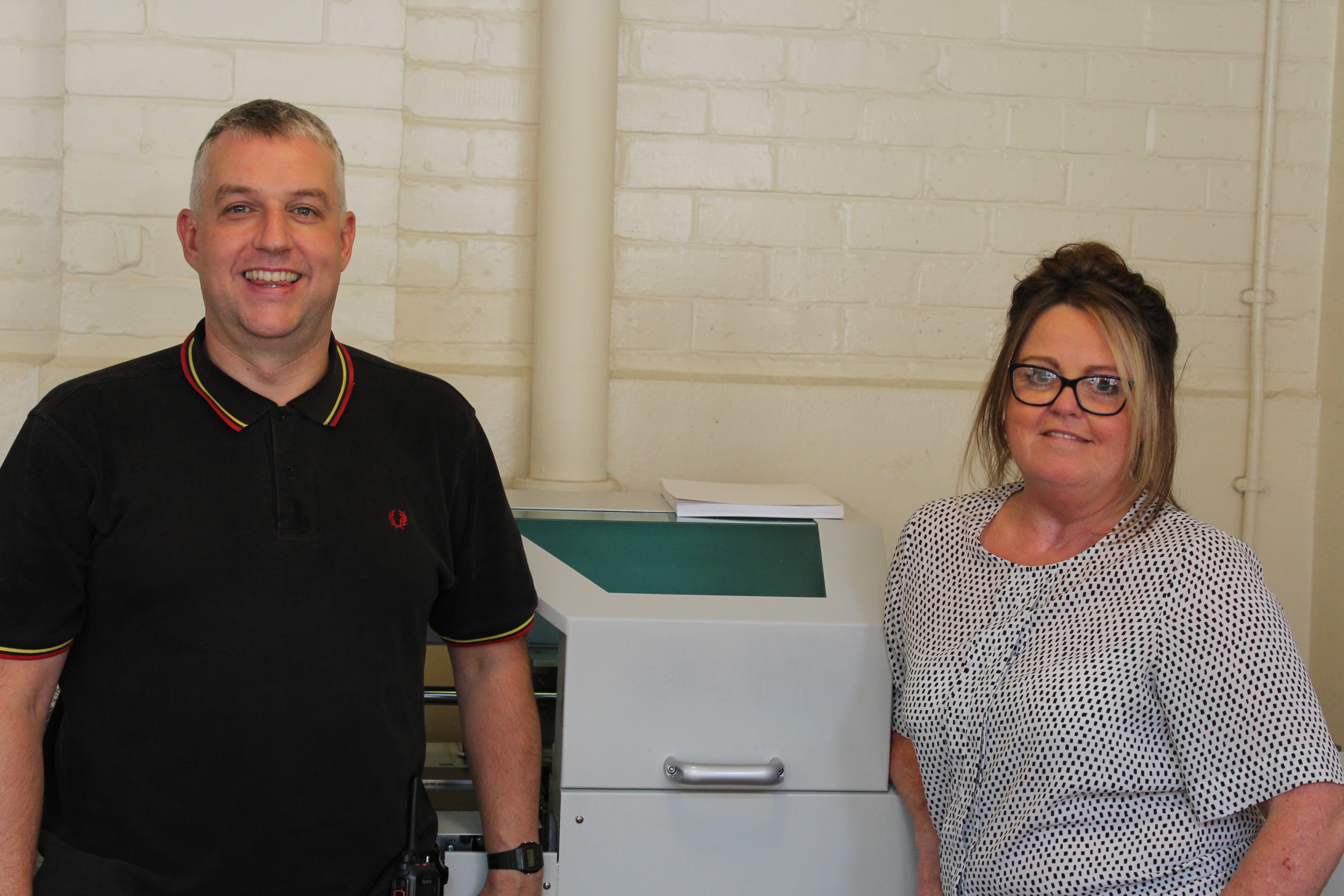
Life inside a prison is about so much more than prisoners moving between their cells and communal areas, and prison officers locking and unlocking doors. There are a whole range of activities underway to help inmates prepare for their release from custody, and many different people in a variety of roles supporting them to do so.
Not having a job is one of the key reasons why people reoffend. Having opportunities – while in custody – to access training and learn new skills to increase their employability, can play a powerful part in helping inmates break the cycle. Which is where people like Joanne and Andrew, specialist production instructors (SPI) at HMP Manchester, come in. We sat down with them to find out more about their role.
What does a Specialist Production Officer (SPI) do?
Joanne: People in prison can sign up to work in a range of specialist onsite prison workshops and are paid a small wage to produce a product or provide a service. SPIs train them and ensure the work they carry out is done safely and meets required quality standards.
I’m currently based in our print production workshop, and generally work alongside my colleague Andrew. We supervise groups of people to print documents and bind books for use here, and for onward distribution to other prisons and courts. We’re also responsible for inducting and training new members of our groups.
We spend five to six hours with our groups every day, so have plenty of time to interact with them and to provide support and encouragement to those individuals who may be struggling either with their work, or more generally, with life in prison.
What attracted you to the role, and what skills do you bring?
Joanne: After eight years sitting in front of a computer screen all day, I was looking for something more interesting. When I saw the job ad, it sounded very interesting and I thought I’d give it a try. Starting off in the textile workshop, it was an opportunity to use my previous experience in this sector, alongside many years of training skills. After a few years, I moved to the print workshop.
Andrew: Like Joanne, I didn’t have previous experience of working with prisoners but was interested in the opportunity it offered to teach people new skills to prepare them to return to their communities. I previously worked in the print industry for 25 years, so have a lot of experience to pass on.
What do you enjoy about your job?
Joanne: You wear about ten different hats in a day. It’s a busy but rewarding job, working with a wide range of people from diverse backgrounds, with varying levels of education, and a range of complex needs. And I enjoy adapting my approach depending on who I’ve got in the workshop each day.
Andrew: I get great satisfaction from seeing people going from having no experience at all, to being able to hand sew a book. For many, it’s the first time they’ve had any sort of job, and they enjoy coming to work. Having some structure in their lives and learning a work ethic is a really positive step for them.
What’s your biggest piece of advice for someone considering applying to be an SPI?
Joanne: Treat the people you work with as individuals, and how you’d want to be treated yourself. Whatever mistakes they have made in life, we are here to help them turn their lives around, and many of them present with complex needs or dependency issues which you need to be aware of. So you need to adapt your approach to working with them accordingly.
While they’re with us, it’s our job to treat people with decency and respect, and to motivate them to want to learn new skills to prepare for their release. You do everything you can to support them in the hope that once they leave custody they’ll turn their lives around and never come back.
Any final words of encouragement for prospective candidates?
Joanne: If you enjoy working with people, and want to help them, this is a good opportunity. It’s not always easy, but it is a very interesting job.
Andrew: It’s not your usual type of role, but it is rewarding. It’s something I never thought I'd be doing 18 months ago, but it’s something a bit different. I’ve had a few letters from people saying thanks. It’s nice when you get something like that, and shows the positive impact we can have on the people we work with.
Interested?
If you’re interested in helping to make a difference in someone’s life, take a look at our current specialist production instructor vacancies.